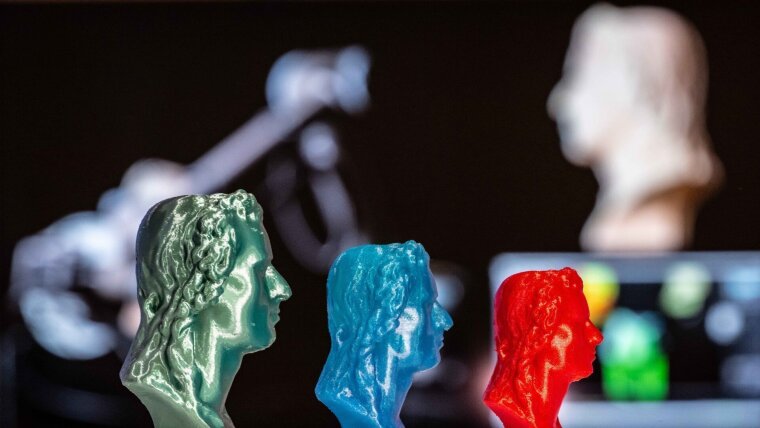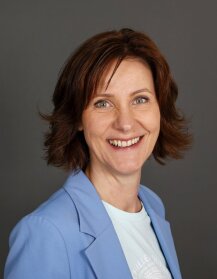
- Studies and Teaching
- Knowledge Transfer and Innovation
Published: | By: Sebastian Hollstein
Digitalization in schools not only means modern and up-to-date delivery of teaching content, but also offers a wide range of opportunities to strengthen the social skills of children and youths. This has a direct impact on the learning environment and coexistence at school – and on society in the long term. Experts at Friedrich Schiller University Jena are researching various areas to find out exactly what the corresponding methods and content could look like and how they can be integrated into the training of future teachers. They will be presenting some of these projects at the Didacta education trade fair in Cologne from 20 to 24 February (at the joint stand "Forschung für die Zukunft" – "Research for the Future", Hall 07.1, Stand D049).
In the international and interdisciplinary project "Key Inclusive Development Strategies for Lifelong Learning" (KIDS4ALLL)External link, researchers at the University of Jena's Intercultural Business Communication department, together with researchers from eleven other countries, have spent the past three years developing a multilingual e-learning platform that will soon go online. What makes it special: The so-called buddy system takes centre stage – children and youths between the ages of 10 and 19 have to solve tasks as a team of two. It is important that both partners contribute their strengths, that the duos learn from and with each other, develop creative solutions together and reflect on the topic and their cooperation. In this way, they acquire important core competences as well as cooperation and communication skills.
The experts provide the teams with short video tutorials on how best to work together, develop ideas and resolve conflicts. Teachers and educators also receive valuable information on how they can support the children and youths in their projects.
Involve pupils on an equal footing
A team from the Intercultural Business Communication department is researching how digital content can bring pupils closer together in a classroom and thus create the best possible lessons for everyone in the project "Strategische Digitalisierung für eine inklusive Schulentwicklung" ("Strategic digitalization for inclusive school development") – or „StrateDie“ for short. The researchers want to develop multimedia materials that support teachers in strategically using digital tools to include all pupils in lessons. All children and youths in the class should be able to contribute and exchange their strengths and competences. The participatory approach strengthens cooperation among the pupils and teaches them appropriate social skills. For example, they should learn how to resolve conflicts constructively as a group, thereby avoiding marginalization and supporting each other instead. The digital impulses are intended, for example, to help pupils who are limited by language challenges to participate in lessons on an equal footing.
The joint project "Schulentwicklung – Digital und Demokratisch" ("School Development –Digital and Democratic", SchuDiDe), which also includes "StrateDie", is one of several research initiatives coordinated by the Institute of Education and Culture at the University of Jena to explore the question of what contemporary learning can look like. After all, digitality, globalization and post-colonialism are also changing pedagogy. Researchers from Jena will be presenting projects at Didacta that look at how digital change is affecting education and training and how topics such as artificial intelligence can be integrated into teacher training.
In another project, the experts are exploring issues relating to the role and responsibility of "Lehrkräften als Agenten der Demokratie" ("Teachers as Agents of Democracy", LADi)“ de – as the title suggests.
Digital cultural assets in the classroom
Representatives from the "Digital Cultur and Collection Management"External link department of the Thuringian University and State Library (ThULB) will also be working with partners from the field at the trade fair to show how 3D technologies can be incorporated into teaching, for example in the field of maths and science. How can cultural assets be scanned in 3D? How can they be integrated into lessons either as 3D prints or in digital space? The experts from Jena will be presenting ideas and methods for this at Didacta.
Contact:
